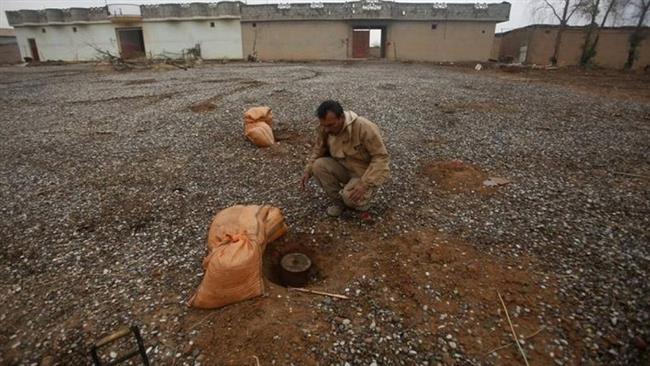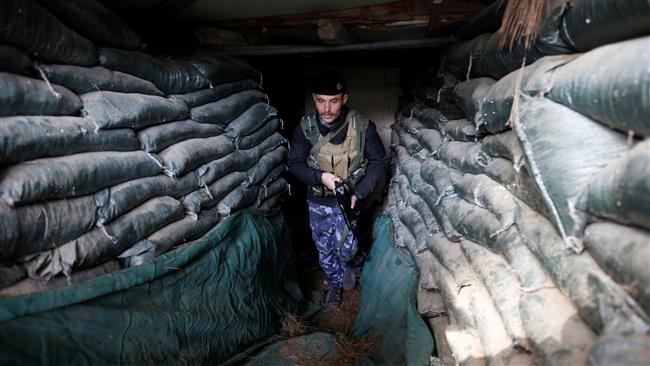$50 million required to clear Daesh mines in Iraq’s Mosul: UN
The United Nations says it costs as much as $50 million to remove all mines, explosive devices and booby traps left by the Daesh terrorist group in and around the Iraqi city of Mosul, as government forces and allies prepare for a new stage of liberation operations in the Takfiri group’s last stronghold on Iraqi soil.
Paul Heslop, the chief of program planning and management section of the United Nations Mine Action Service (UNMAS), announced the estimate on Monday, adding that another $50 million was needed this year for the rest of the Arab country to be cleared of the landmines and improvised explosive devices (IED) planted by Daesh.
“Clearing IEDs and building clearances is a lot more dangerous than minefields. You need a higher level of technical skill and complex equipment and it's slower. As areas are liberated, you get a better idea of the level of contamination,” he added.
The UNMAS, operating as part of the world body’s Department of Peacekeeping Operations, had previously estimated that some $112 million was needed for the whole of Iraq this year, and around $178 million next year.
Iraqi army soldiers, supported by fighters from pro-government Popular Mobilization Units, commonly known by the Arabic term Hashd al-Sha’abi, and Kurdish Peshmerga forces, launched a joint operation on October 17, 2016 to retake Mosul, Daesh’s last urban bastion in Iraq, from terrorists. The anti-terror forces have so far fully liberated the eastern half of the flashpoint city, home to more than one million people.
“I could see Iraq needing an Afghanistan-style (demining) operation, which at its peak was 15,000 people about five years ago. You could put 5,000 on the ground in Iraq and they would be gainfully employed,” further said Heslop, an expert on conflicts from Afghanistan to Angola.

During the past two years, UNMAS’s demining teams have managed to clear nearly 400 priority locations in Iraq's Fallujah and Ramadi in the western Anbar Province, removing over 2,600 explosive hazards from areas recaptured from Daesh.
Daesh began its campaign of terror in northern and western Iraq in 2014. Iraqi army soldiers and allied fighters are leading military operations to win back militant-held regions, trying to eliminate terrorists or driving them out of their country.
VIDEO | Yemen: A bone in Israeli neck
D-8’s role in Iran’s economy after Cairo summit
China slams US as ‘war-addicted’ threat to global security
China ‘firmly opposes’ US military aid to Taiwan
VIDEO | Press TV's News Headlines
President Yoon Suk Yeol to be removed from office
At least 19 Gazans killed by Israeli airstrikes since dawn: Medics
Leader: Iran neither has nor needs proxy forces












 This makes it easy to access the Press TV website
This makes it easy to access the Press TV website